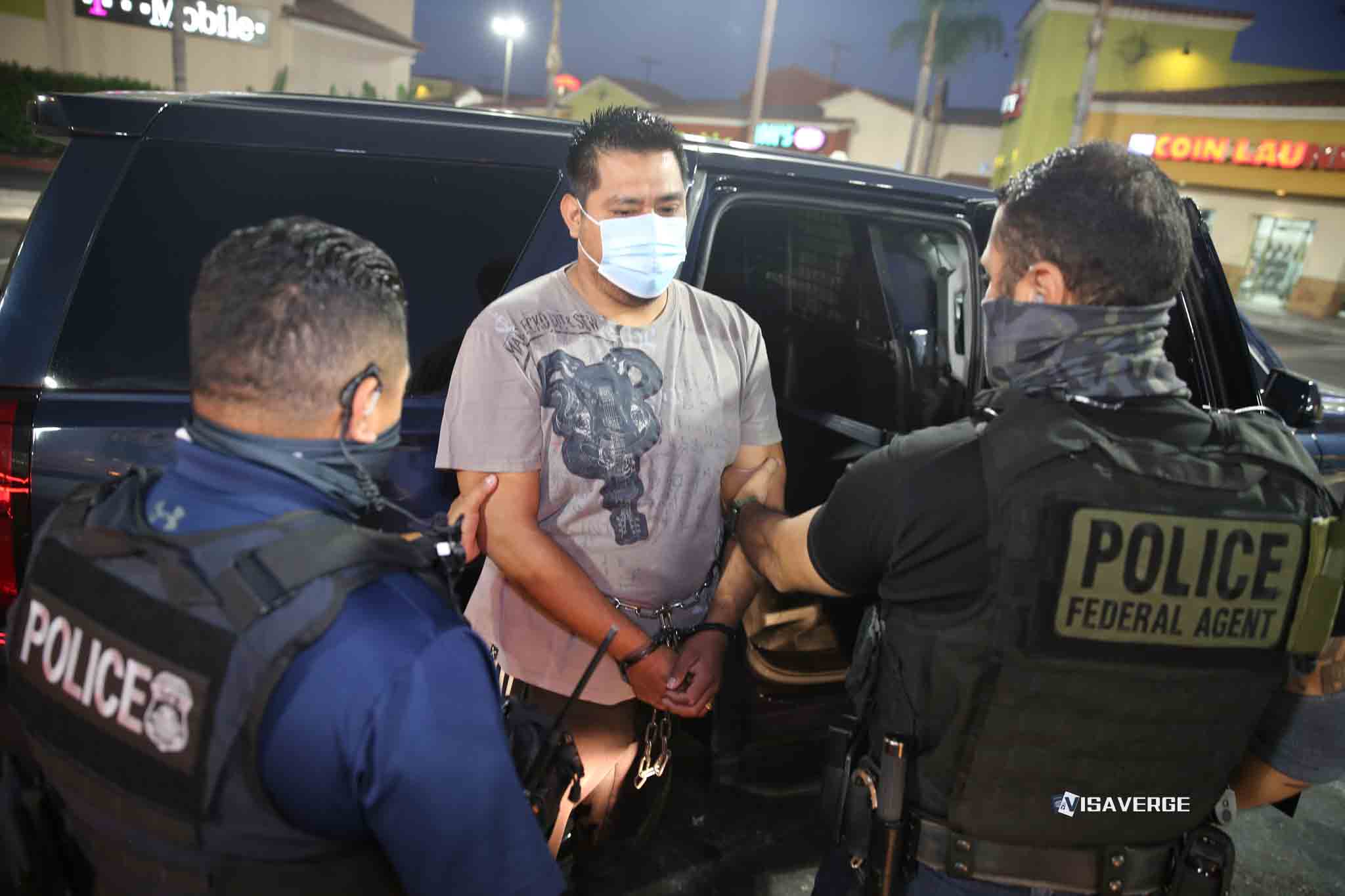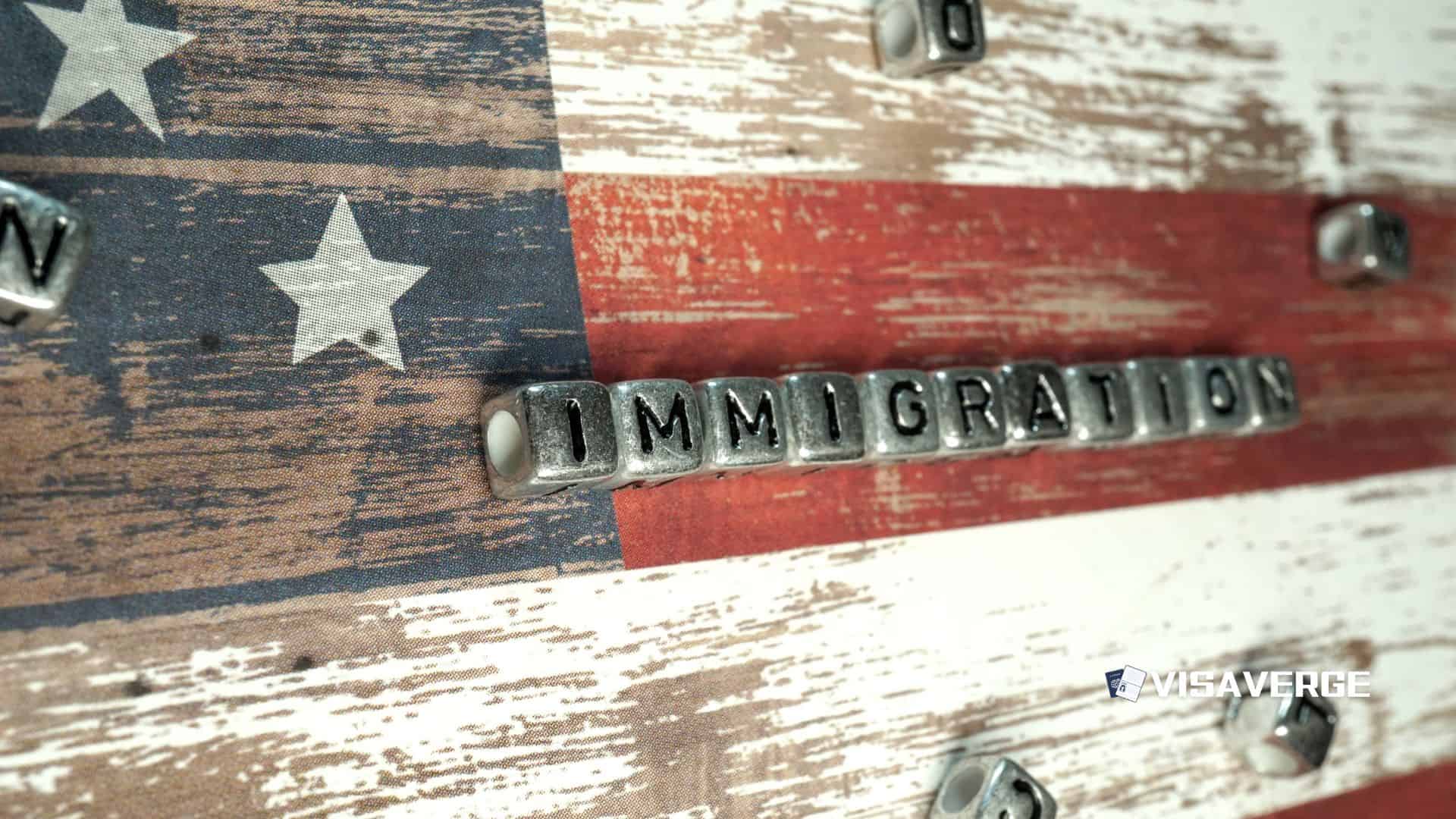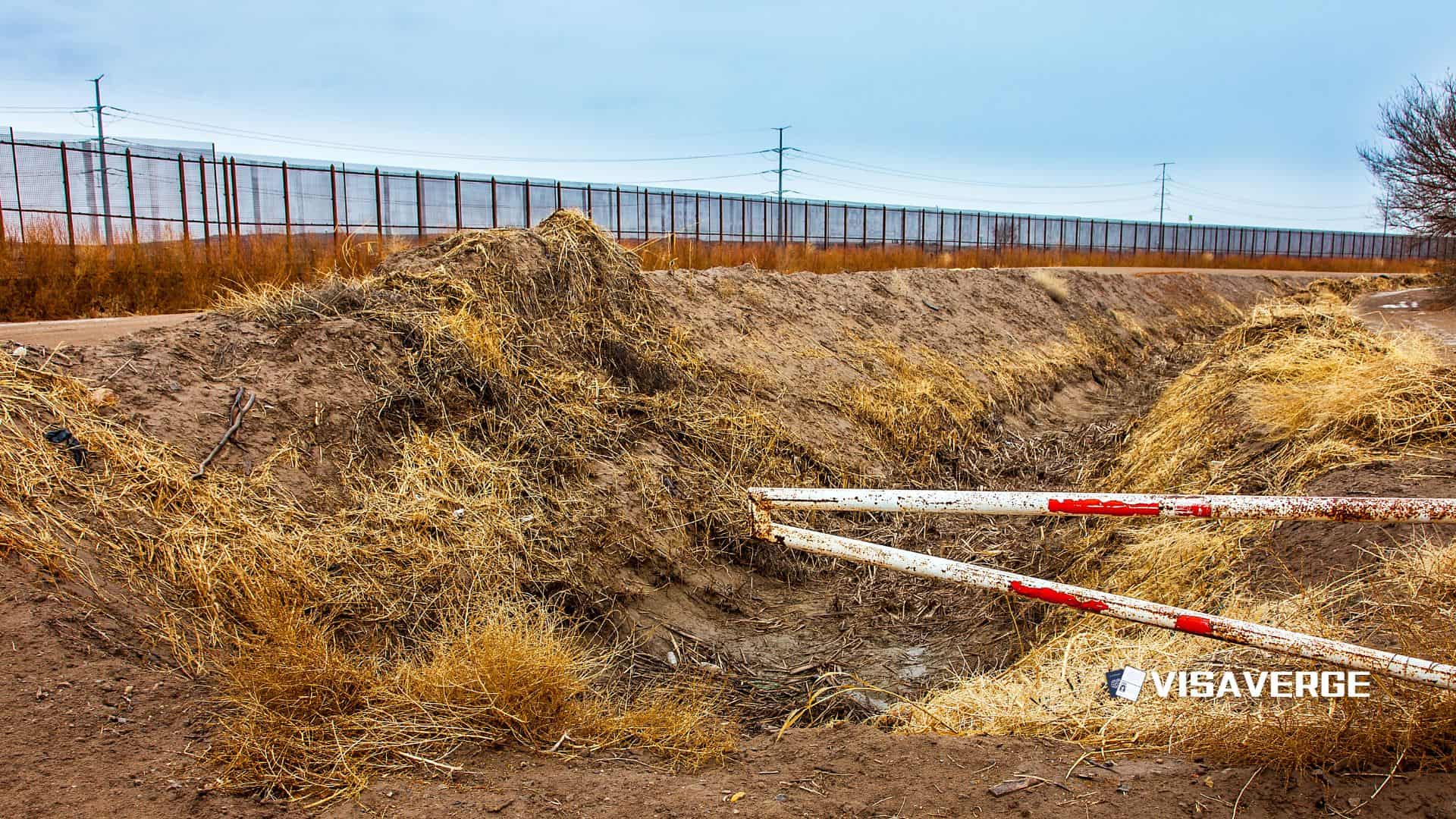Key Takeaways
• On June 4, 2025, HSI arrested 12 undocumented workers at a Marietta nail salon at 7:50 PM.
• The arrests are part of a nationwide enforcement wave targeting workplaces suspected of hiring undocumented immigrants.
• Detainees face processing, detention, court hearings, and possible deportation or voluntary return under current policies.
Federal Immigration Authorities Arrest 12 Undocumented Workers at Marietta Nail Salon
On June 4, 2025, federal immigration authorities arrested 12 undocumented workers at a nail salon in Marietta, Georgia. The operation, led by Homeland Security Investigations (HSI), took place at around 7:50 PM Eastern Time. This event is part of a larger wave of immigration enforcement actions happening across the United States 🇺🇸 in recent weeks. The Marietta nail salon case has drawn attention from local communities, legal advocates, and national immigration policy watchers.

What Happened in Marietta?
Who: Federal immigration authorities, specifically agents from Homeland Security Investigations (HSI), arrested 12 workers at a Marietta nail salon.
What: The workers were taken into custody for being undocumented immigrants—meaning they did not have legal permission to live or work in the United States 🇺🇸.
When: The arrests happened on Wednesday, June 4, 2025, at about 7:50 PM.
Where: The operation took place at a nail salon in Marietta, Georgia.
Why: The arrests are part of ongoing efforts by federal immigration authorities to enforce immigration laws and remove people who are in the country without legal status.
How: HSI agents entered the nail salon, identified undocumented workers, and arrested them. The operation was planned and executed as part of a broader enforcement campaign.
Details of the Operation
The Marietta nail salon was the focus of a targeted enforcement action. According to HSI, more than 10 employees were initially reported as arrested, but later updates confirmed the number as 12. The operation was not random; it was part of a series of actions across the country aimed at workplaces suspected of hiring undocumented workers.
Key points about the operation:
- 12 undocumented workers were arrested at the Marietta nail salon.
- The operation was carried out by HSI, a branch of the Department of Homeland Security (DHS).
- The arrests happened in the evening, suggesting a coordinated effort to catch workers at the end of their shift.
- The nail salon is one of several businesses targeted in recent weeks as part of a national enforcement push.
Part of a Larger Pattern
The Marietta nail salon arrests are not an isolated event. In the weeks leading up to this operation, federal immigration authorities have increased workplace enforcement actions in several states. Some recent examples include:
- ICE raids at restaurants in popular neighborhoods in Washington D.C.
- A DEA operation in Colorado Springs that led to the detention of over 100 immigrants suspected of being in the country illegally.
- Enforcement actions in Louisiana where three U.S. citizen children were reportedly deported with their Honduran-born mothers.
These actions show a clear pattern: federal immigration authorities are focusing on workplaces and communities where they believe undocumented immigrants are present.
What Happens to the Arrested Workers?
The 12 individuals arrested at the Marietta nail salon are now in the custody of federal immigration authorities. While specific details about their current status have not been released, the typical process for people arrested in similar situations includes several steps:
- Initial Processing: After arrest, individuals are taken to a local immigration office or detention center. Their personal information is recorded, and their immigration status is checked.
2. Detention: Many are held in Immigration and Customs Enforcement (ICE) detention facilities while their cases are reviewed. - Court Hearings: Detainees are scheduled for immigration court hearings. Here, a judge decides whether they can stay in the United States 🇺🇸 or must leave.
4. Possible Deportation: If the court finds they are in the country without legal status and have no legal grounds to stay, they may be ordered deported. - Voluntary Return: In some cases, people may be offered the chance to leave the country voluntarily, sometimes with financial or travel assistance.
The process can take weeks or months, depending on the complexity of each case and the availability of legal representation.
The Policy Context: Why Are These Raids Happening Now?
The Marietta nail salon operation comes at a time of heightened immigration enforcement under the current administration. President Trump has made immigration enforcement a top priority, with several new policies and executive actions in place.
Recent policy developments include:
- Voluntary Return Program: The Trump administration recently announced a program offering $1,000 and travel help to undocumented immigrants who agree to return to their home countries on their own.
- Executive Actions: President Trump has signed several executive orders aimed at increasing immigration enforcement, especially as he approaches 100 days in office.
- Increased ICE Raids: Immigration and Customs Enforcement (ICE) has stepped up workplace raids and community enforcement, leading to hundreds of arrests nationwide.
- Legal Tools: There have been discussions among top advisers about suspending habeas corpus—a legal right that protects against unlawful detention—during immigration crackdowns.
These policies are designed to send a strong message that the United States 🇺🇸 is serious about enforcing its immigration laws. However, they have also sparked controversy and legal challenges.
Legal Challenges and Community Response
The current wave of immigration enforcement has led to strong reactions from immigrant communities, legal advocates, and some local officials. Several incidents show the growing tension between federal immigration authorities and those who oppose these actions.
Examples of resistance and legal action:
- Community Protests: In one case, dozens of people surrounded ICE agents to try to stop them from detaining an immigrant mother. This led to two arrests.
- Lawsuits: Georgia immigration attorney Charles Kuck is expanding a lawsuit over revoked student visas into a class-action case, which could affect thousands of international students.
- Judicial Conflict: Milwaukee County Judge Hannah Dugan was arrested by federal agents in what appears to be a dispute over immigration enforcement.
- Municipal Lawsuits: Thirteen plaintiffs have sued over executive orders that target local governments limiting cooperation with federal immigration authorities.
These examples show that immigration enforcement is not just a legal issue—it is also a social and political one, affecting families, communities, and local governments.
Recent Related Cases: Real People, Real Impact
The Marietta nail salon case is just one of many recent incidents where immigration enforcement has touched the lives of individuals and families. Here are a few other cases that highlight the human side of these policies:
- Ximena Arias-Cristobal: A 19-year-old DACA recipient (someone protected from deportation under the Deferred Action for Childhood Arrivals program) was taken into ICE custody after a traffic stop. All charges were later dropped when video showed she was not the driver.
- Newark Mayor Ras Baraka: The mayor was arrested while protesting the opening of a federal immigration detention center.
- Maryland Family: A family who had recently moved reported that federal immigration agents raided their new home, looking for suspects who no longer lived there.
These stories show that immigration enforcement actions can have wide-reaching effects, sometimes impacting people who are not the intended targets.
How Do These Raids Affect Stakeholders?
Immigration enforcement actions like the one at the Marietta nail salon affect many different groups:
For Immigrants
- Fear and Uncertainty: Many undocumented immigrants live in fear of being arrested at work or in their communities.
- Family Separation: Arrests can lead to families being split up, especially when parents are detained or deported.
- Legal Challenges: Those arrested often face complicated legal processes and may not have access to lawyers.
For Employers
- Legal Risks: Businesses that hire undocumented workers can face fines, loss of licenses, or even criminal charges.
- Workforce Disruption: Raids can leave businesses short-staffed and disrupt daily operations.
- Reputation: Publicized raids can damage a business’s reputation in the community.
For Local Communities
- Economic Impact: Many local economies depend on immigrant workers, especially in service industries like nail salons.
- Community Tension: Raids can create tension between immigrant communities and law enforcement.
- Public Services: Local governments may face pressure to support families affected by enforcement actions.
For Policy Makers
- Balancing Enforcement and Rights: Officials must balance the need to enforce immigration laws with respect for individual rights and community stability.
- Political Pressure: Immigration is a hot-button issue, and policy makers face pressure from both sides of the debate.
What Are the Legal Rights of Detained Immigrants?
People arrested by federal immigration authorities have certain legal rights, even if they are undocumented. These include:
- The right to remain silent: They do not have to answer questions about their immigration status.
- The right to an attorney: While the government does not provide free lawyers in immigration cases, detainees can hire their own.
- The right to a hearing: Most people have the right to a hearing before an immigration judge.
For more information about the rights of detained immigrants, readers can visit the U.S. Citizenship and Immigration Services (USCIS) official website.
What Should Employers Know?
Employers, including nail salon owners in places like Marietta, must follow federal laws when hiring workers. They are required to verify the identity and work authorization of every employee using Form I-9, Employment Eligibility Verification. You can find the official Form I-9 here.
Employers who knowingly hire undocumented workers can face serious penalties, including:
- Fines
- Loss of business licenses
- Criminal charges in severe cases
It is important for business owners to keep accurate records and follow all employment laws to avoid legal trouble.
Community Resources and Support
For those affected by immigration enforcement actions, several resources are available:
- Legal Aid Organizations: Many non-profit groups offer free or low-cost legal help to immigrants facing detention or deportation.
- Community Centers: Local organizations often provide support, including help with food, housing, and connecting families with lawyers.
- Hotlines: Some groups operate hotlines for people to report raids or get emergency help.
Knowing where to turn for help can make a big difference for families and individuals caught up in enforcement actions.
The Bigger Picture: Immigration Enforcement in the United States 🇺🇸
The Marietta nail salon arrests are part of a larger debate about immigration policy in the United States 🇺🇸. Supporters of strict enforcement argue that it is necessary to uphold the law and protect jobs for citizens. Critics say that these actions break up families, hurt local economies, and create fear in immigrant communities.
Key points in the national debate:
- Enforcement vs. Compassion: How can the country enforce its laws while treating people fairly?
- Economic Impact: Many industries rely on immigrant workers, both documented and undocumented.
- Legal Complexity: Immigration law is complicated, and many people do not understand their rights or the process.
As reported by VisaVerge.com, the current wave of enforcement actions is likely to continue, especially as federal immigration authorities focus on workplaces like nail salons, restaurants, and other service businesses.
What Comes Next?
The situation in Marietta is still developing. More information about the fate of the 12 arrested workers may become available in the coming days. Legal advocates are likely to get involved, and the community may respond with protests or calls for support.
For now, the Marietta nail salon case serves as a reminder of the real-life impact of immigration enforcement actions. It highlights the need for clear information, legal support, and community resources for those affected.
Practical Steps for Readers
If you or someone you know is concerned about immigration enforcement:
- Know your rights: Learn what to do if approached by federal immigration authorities.
- Keep important documents handy: Have copies of identification, legal papers, and contact information for a lawyer.
- Stay informed: Follow updates from trusted sources, including official government websites and reputable news outlets.
- Seek legal help: If you are detained or face deportation, contact a qualified immigration attorney as soon as possible.
For more information on immigration enforcement and legal rights, visit the U.S. Immigration and Customs Enforcement (ICE) website.
Conclusion
The arrest of 12 undocumented workers at a Marietta nail salon by federal immigration authorities is a significant event in the ongoing debate over immigration enforcement in the United States 🇺🇸. It reflects broader trends in policy and enforcement, with real consequences for workers, employers, and communities. As the situation develops, staying informed and knowing your rights are the best ways to protect yourself and your loved ones.
Learn Today
Homeland Security Investigations (HSI) → A federal agency under DHS focused on investigating immigration violations and related crimes.
Undocumented Workers → Individuals working in the U.S. without legal authorization or immigration status.
ICE (Immigration and Customs Enforcement) → Federal agency responsible for immigration enforcement and detention operations.
Voluntary Return Program → A policy offering financial and travel support for immigrants choosing to leave the U.S. voluntarily.
I-9 Employment Eligibility Verification → A form employers use to verify workers’ identity and legal employment authorization.
This Article in a Nutshell
Federal agents arrested 12 undocumented workers at a Marietta nail salon on June 4, 2025, part of a nationwide enforcement surge targeting workplaces suspected of hiring unauthorized immigrants, highlighting the ongoing immigration debate and its impact on workers, employers, and communities.
— By VisaVerge.com













